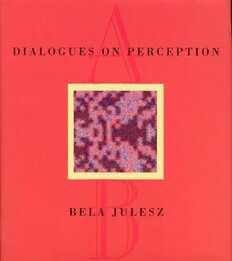
Dialogues on Perception PDF
214 Pages·1994·3.38 MB·English
Most books are stored in the elastic cloud where traffic is expensive. For this reason, we have a limit on daily download.
Preview Dialogues on Perception
Description:
Renowned for his work in depth perception and pattern recognition, Bela Julesz originated the techniques--involving computer-generated random-dot stereograms, cinematograms, and textures--that resulted in the subfield of human psychology called "early vision." In this book, Julesz elucidates the ideas and insights generated by this exciting paradigm in a series of dialogues between Julesz the naif and Julesz the scientist. These playful, personal, deeply informed dialogues, though challenging, are never beyond the reach of the general scientific reader interested in brain research. Among the topics covered are stereopsis, motion perception, neurophysiology, texture and auditory perception, early vision, visual cognition, and machine vision. Julesz's work on early vision and focal attention is the basis of the discussions, but he is equally at ease recounting his debate with John Searle and describing his interactions with Salvador Dali. He also addresses creativity, mathematics, theories, metascientific questions, maturational windows, and cortical plasticity, relates his current work to past findings and ideas, and considers how some strategic questions can be solved with existing tools.
See more
The list of books you might like
Most books are stored in the elastic cloud where traffic is expensive. For this reason, we have a limit on daily download.
